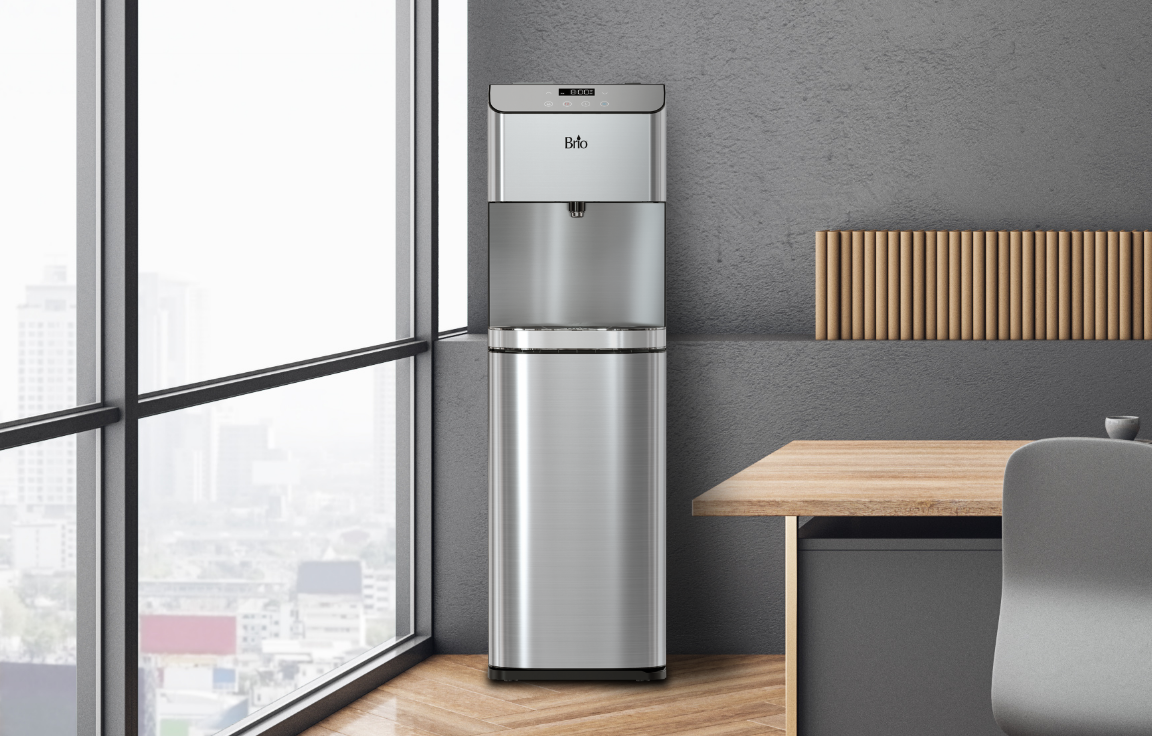In the United States, most households have access to public drinking water.
The Environmental Protection Agency (EPA) reports that there are over 148,000 public water systems in the United States. While monitored and maintained, there are concerns about today’s tap water.
Several recent studies have shown alarming tap water contaminant rates, varying from region to region. In 2023, a USGS study found that at least 45% of the nation’s tap water contains one or more PFAS, a group of synthetic chemicals that may lead to adverse health effects. However, this is just one example, as tap water can contain everything from arsenic and lead to chlorine and sediment.
Is it time to invest in a tap water filter? Here is what to consider.
Why Install a Tap Water Filter?

The reason you want to install a tap water filter can vary, especially if contaminants are apparent or when you have conducted a home water test. For example, if you can smell and taste chlorine, your initial objective may be to improve drinking water quality. In this case, an activated carbon water filter may be ideal. However, you may need to invest in a 4-stage ultrafiltration or reverse osmosis system to consume the highest quality water.
While your primary goal (like removing the smell and taste of chlorine) may initially encourage you to install a water filter, there are many other reasons why it’s a great idea. Adjusting your water quality will improve your health, protect your appliances, and support more environmentally conscious decisions.
Benefits of Installing a Tap Water Filter

Here are just some of the advantages of installing a tap water filter:
• Better-tasting water: Once you install a filter, you will notice a significant difference in the taste of your water. Whether your home water filter removes sediment, chlorine, volatile organic compounds (VOCs), or all of the above, you can taste the difference when your tap water is cleaner.
• Healthier water: Most people drink their tap water daily, so exposure to contaminants over time can affect health. You may also be exposed to bacteria and viruses, which can contribute to poor health. Depending on the chemicals, the health risks could be significant, including an increased risk of kidney cancer.
• More optimal skin and hair care: If you have hard water, you may notice issues with your skin and hair. A shower filter can be ideal for this application. However, if high chlorine is the issue, you could need a tap water filter system for drinking and a shower filter for healthier skin and hair.
• Less plastic waste: By reducing your reliance on plastic bottled water, you will positively impact the environment.
• Household benefits: You may notice fewer spots on your dishes and brighter clothing while protecting your appliances and plumbing.
Knowing your goal will help you choose the best water filter for home use. Sometimes, you need to add solutions to target specific concerns. For example, you may want a UV light to kill viruses and bacteria in tap water.
Tap Vs. Bottled Vs. Filtered Water

Staying hydrated is crucial. Until now, which of the following have you primarily relied on: tap, bottled, or filtered water?
Having access to drinking water is a basic human right. However, some public systems are better than others. For some, old pipes and lead are the primary concern. For others, chlorine and other chemicals are the issue. These examples are the reality of tap water. So, while you will have access to drinking water to stay hydrated, you may be exposed to contaminants that threaten your long-term health.
If you know these possibilities, you may reach for bottled water. With so many options on the market, rating bottled water quality can be challenging. Often, bottled water is just tap water that has been filtered and has minerals added to it. Whether you source natural or alkaline water, you still consume trace amounts of plastic.
A home tap water filter can be the healthiest, most sustainable, and most cost-effective option. However, different filters remove different contaminants, so you need to know what you want to target. For some, a carbon filter will address their concerns about chlorine, sediments, and other contaminants (you may require a multi-stage filtration system). However, an ultrafiltration or reverse osmosis system is a more comprehensive solution.
Choosing the Best Water Filter for Home Use

Staying hydrated is crucial. Until now, which of the following have you primarily relied on: tap, bottled, or filtered water?
Having access to drinking water is a basic human right. However, some public systems are better than others. For some, old pipes and lead are the primary concern. For others, chlorine and other chemicals are the issue. These examples are the reality of tap water. So, while you will have access to drinking water to stay hydrated, you may be exposed to contaminants that threaten your long-term health.
If you know these possibilities, you may reach for bottled water. With so many options on the market, rating bottled water quality can be challenging. Often, bottled water is just tap water that has been filtered and has minerals added to it. Whether you source natural or alkaline water, you still consume trace amounts of plastic.
A home tap water filter can be the healthiest, most sustainable, and most cost-effective option. However, different filters remove different contaminants, so you need to know what you want to target. For some, a carbon filter will address their concerns about chlorine, sediments, and other contaminants (you may require a multi-stage filtration system). However, an ultrafiltration or reverse osmosis system is a more comprehensive solution.













































































